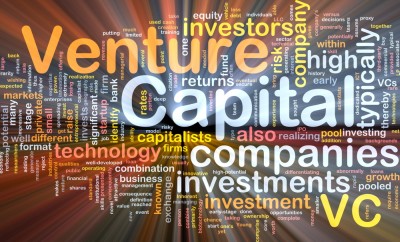How to Get Entry Level Venture Capital Jobs and Private Equity Jobs
Post Views 12Overview of Working in Venture Capital
The National Venture Capital Association defines venture capital firms as private partnerships or closely held corporations funded by private and public pension funds, endowment funds, corporations, wealthy individuals, foreign investors, and the venture capitalists themselves. In a nutshell, these firms invest their own capital in companies in exchange for a generous share of stock and future profits. They often get equity stakes of 20 to 40 percent. Their end goal is to help build a strong company and drive it toward a liquidity event like a merger or IPO so they can make a considerable profit.
Though the first modern VC firm was founded just after World War II, the industry did not really take off until the 1980s. In the 90s, VC firms began to invest in burgeoning Internet companies. Equity financing soon surpassed debt financing as the entrepreneurial model of choice. A slew of successful IPOs fueled the VC fire.
While VCs are much more cautious about investing in today’s environment, things are certainly looking up. According to the National Venture Capital Association, VC investment has been increasing the past few years.
The Largest Source of Venture Capital Jobs is on
www.FinancialServicesCrossing.com
Trends in Venture Capital
After a rather stagnant period, venture funding of early-stage companies is also back, and seed money is once again available. Investments in e-commerce start-ups have fallen drastically, while those in life sciences and medical device companies have risen. The criteria VCs look for in potential investments are changing. They are less impressed by high-concept companies and more attracted to strong management teams, existing sales, and near-term profit potential.
Getting Hired
This is not an easy industry to break into. Most VCs employ MBAs, usually from top schools. Many of those MBAs also have degrees or professional backgrounds in technical fields like software, telecommunications, or health care. The combination of business/finance experience and technical prowess is a winning one in this industry.
The venture capital biz is all about schmoozing, and It’s hiring process is no different. A few of the larger firms will make appearances at specific B-school campuses, but positions are few and far between, so the selection process is highly competitive. Most firms hire only based on the referral of a trusted sources— network, network, network.
The Largest Source of Venture Capital Jobs is on
www.FinancialServicesCrossing.com
Salary of People in the Venture Capital Industry
In the VC/private-equity world, your compensation is broken up into salary, bonus and carried interest. Salaries generally range from $100,000 to $200,000 and bonuses are significant usually greater than the base salary. Carried interest is determined and calculated in myriad ways, but is basically the profit split of proceeds to the general partner. One 10-year industry veteran estimates his annual income to be upwards of $1 million.
Hours
Sixty to 70 hours a week is the norm.
Travel
How much you travel depends on where your portfolio companies are. Most VCs report traveling one to two days each week.
Office Culture
VC firms range in size from two to 40 people, with most hovering at five to 15, so the atmosphere is quite intimate. One insider describes the mood as mature, intense, highly professional, and discreet. Dress is generally business casual. Though the hours are not as intense as those in investment banking or some consulting positions, people work diligently and lunches are often spent in front of a computer.
The social life in VC firms isn’t like that of an investment bank or a typical Internet start-up. It isn’t an industry that most people break into right after college like consulting or investment banking, and work hard, play hard is definitely not a mantra you hear at VC firms. Most people have worked in another industry and gone to B-school, so the age range is higher, and many people have families.
See: Organization Culture Matters Most
The Crowd
This is not a business for the faint of heart. The stakes are high and you must be willing to take risks. Although VCs are always zealous about performing due diligence on potential investments, gut instinct is also a factor in every decision. You have to trust yourself and your business savvy.
Your average venture capitalist is not only a very competent businessperson, but also an incredible schmoozer. If you are the type to eschew cocktail chat and rounds of golf, you should think twice about your future in this business. Most people in the industry are MBAs. In fact, the degree is almost always a prerequisite to get your foot in the door. You rarely see people transition straight from B-school into a VC firm, though. It’s not impossible, but It’s tough to pull off. VCs generally have previous work experience in other industries. A senior associate at one firm says, There are five partners in my firm: Three had careers as partners in consulting firms; one has a Ph.D. in health sciences; and one was a pharmaceutical representative.
The VC world is not the most diverse, and women tend to be scarce. The co-founding partner of San Francisco-based firm Hummer Winblad Venture Partners is a woman, but this is a rarity. Many firms still have an old boys club atmosphere. Some insiders claim that a set of golf clubs is a must.
The Largest Source of Venture Capital Jobs is on
www.FinancialServicesCrossing.com
How to Get Venture Capital Jobs
In the VC industry, supply and demand are simply not on the side of the job seeker. As one of our contacts notes, “This isn’t the kind of job that has organized recruiting.” Most freshly minted MBAs put in a couple of years at top consulting firms or investment banks before attempting a foray into a venture capital firm.
What’s your best shot? Says one industry insider, “It’s all about networking. The chance of getting a job by sending in a resume and cover letter is very slim. Even with a warm lead, it’s hard.”
Another agrees, “Don’t expect a cover letter and resumé to get you a job. Network as hard as you can. Send your resumé to headhunters.”
You should also consider joining the high-tech, investment banking, or entrepreneur clubs while you’re in B-school. If you are serious about the VC industry, these are the kind of people you will want to cultivate relationships with. They are useful contacts and will one day provide great deal flow.
The key, according to those who have been through it, is to have someone who’s pulling for you. Get in touch with undergraduate or B-school alumni in the business, meet as many people as you can, and make an impression. VC firms will rarely go to schools and interview. If they do, they are guaranteed to have hundreds of students vying for one or two positions. Usually, they rely on the referrals of trusted friends and colleagues.
Don’t expect trick questions or cases to be thrown at you in an interview at a VC firm. These intimate operations depend on good chemistry between employees, so you should expect to meet every professional at a firm. Often, everyone has veto power. They want to get a feel for who you are and what you’re about, since they’ll be depending on you to make multimillion-dollar decisions.
The Largest Source of Venture Capital Jobs is on
www.FinancialServicesCrossing.com
How to Move Up in Venture Capital
Your upward mobility in this business is determined by your firm’s partners. There is no strictly prescribed path as there is at a large bank or consulting firm. Most insiders describe the system as meritocratic. If you prove yourself to be someone who is intelligent, possesses a keen business sense and excellent judgment, and “clicks” with colleagues and clients alike, you can usually expect the ultimate reward: partnership. Our contacts estimate that in most cases, however, it takes anywhere from five to 10 years post-MBA to reach this level. Most VCs can make VP within four years.
The Largest Source of Venture Capital Jobs is on
www.FinancialServicesCrossing.com
What It Takes to Be Good at Venture Capital
Ambitious, self-starting, thoughtful, and diligent are all words that came up when we asked insiders to describe the qualities that spell success in this business. Firms look for people who “enjoy thinking outside the box” and “don’t need to be told exactly what to do.”
Banking is a helpful background. One insider stresses that you must have “experience in financial analysis. Once you get in, there’s no real training.”
Strategic consulting experience is also helpful. You must be quick to absorb facts on every topic in every industry and have an analytical mind-set. Flexibility and an entrepreneurial spirit are also important.
There are other necessary qualities that aren’t as tangible but are equally important, like strong business intuition, social skills, solid judgment, and maturity.
Typical Day in Venture Capital
“Chaotic, to say the least,” said one veteran. Others described their days as “hectic,” filled with lots of meetings, a constant flood of e-mail and phone calls, and many informal tête-à-têtes with colleagues. One founder laid out his schedule for us:
- Reviewing business plans
- Interacting with clients
- Preparing materials
- Facilitating meetings
- Screening investment portfolios
- Working with portfolio companies
- Closing deals
Buzzwords in Venture Capital
- Registration rights
- Piggyback rights
- Tagalong rights
- Roll-up
- Angels
- EBITDA
- Incubators
- IPO
- Seed money
- Liquidity event
- Vesting
- Lead investor
- Series A (B,C,D)
Pros & Cons of Working in Venture Capital
Pros
- Flexibility
- Smart colleagues
- Exciting clients
- Intimate environment
- Autonomy
- Learning curve never flattens
- Constant challenge
- Ability to make decisions and influence events
- Close to all aspects of running a corporation without actually running it
- Diversity of tasks
- “There may be no better way to learn about how business works at a high level than a role in private equity. I was in consulting before I joined this industry and had no idea how little I knew about business.”
- Working with a variety of industries and taking on a variety of roles
Cons
- All-consuming
- Frustrating at times
- Risky business
Misconceptions of Working in Venture Capital
- Myth: The same skills that will make you a successful consultant or investment banker will make you a successful venture capitalist.
- Reality: You can’t learn this trade, you just have to do it. This industry has its own unique skill set. You can’t walk out of an investment bank and into a private equity shop and know what you’re doing.
- Myth: The pay packages for the successful in this business are substantial.
- Reality: Make that incredibly substantial. Partners take in between $1 million and $2.5 million a year at the top firms. Associates also make out quite well.
The Largest Source of Venture Capital Jobs is on
www.FinancialServicesCrossing.com
Great Perks
Flexibility (have cell phone/BlackBerry and can work from anywhere)
Reasonable hours
Great compensation package
How to Get Entry Level Venture Capital Jobs and Private Equity Jobs by Harrison Barnes



 4041 Lawyer Jobs – Top 5 Lawyer Job Opportunities
4041 Lawyer Jobs – Top 5 Lawyer Job Opportunities  How to Get a Job in Health Care or Biotechnology
How to Get a Job in Health Care or Biotechnology